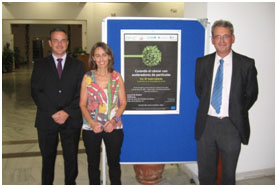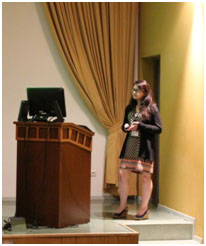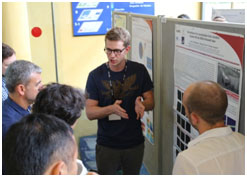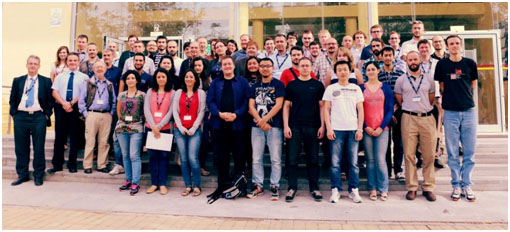The Marie Curie Initial Training Network oPAC – Optimization of Particle Accelerators, coordinated by Prof. Carsten P. Welsch and his EU Project T.E.A.M. from the Cockcroft Institute/University of Liverpool, has recently held its final official event in the form of an International Conference on Accelerator Optimization. The conference took place from 7 to 9 October at the headquarters of one of the project partners, the Centro Nacional de Aceleradores (CNA) in Seville (Spain).
The blue skies of Seville offered a splendid background for the conference, which started with a review of the current status of the Large Hadron Collider and its future upgrades. The following sessions featured representatives from next generation accelerators and light sources like the Facility for Antiproton and Ion Research (Germany), the European Spallation Source (Sweden), Solaris (Poland), and ESRF (France) among others.
The oPAC network has fostered a strong collaboration between research facilities, universities, and industry and the conference provided the ideal setting to strengthen those links. A session dedicated to applications of particle accelerators had a prominent contribution from private companies including IBA group and Med Austron.
The last session devoted to detector technologies was almost taken over by members of the Cockcroft Institute with Drs Ralph Fiorito, Adam Jeff, Hao Zhang, and Sergey Vinogradov talking about the latest developments in high-resolution and non-invasive beam profile monitors, as well as beam loss monitoring systems. A selected number of works presented at the conference will be published in a special issue of Physical Review Special Topics: Accelerators and Beams.

Left to right: Prof. Carsten Welsch (oPAC Coordinator), Prof. Maria Isabel Gallardo, and Prof. Joaquín Gómez (Director of CNA)
In order to raise more awareness of the importance of accelerators for science and society the conference also sponsored an outreach talk, especially addressed to the Spanish public, about the treatment of cancer with particle accelerators. The talk, given by Prof. María Isabel Gallardo, from the University of Seville, reviewed the history of radiotherapy, the physical principles of their efficacy in diagnosing and treating cancer, and the future prospects of radiological techniques. Professor Gallardo highlighted the hope offered by accelerators of a definitive cure for cancer, if only the necessary investments where made in facilities for ion therapy. The talk was attended by a large group of students, who showed their interest in the topic by actively engaging in many questions.
More information about the event and all talks can be found on the conference web page. The network is much obliged to CNA for hosting the conference and to all the fellows who contributed to the success of the event.

This project has received funding from the European Union’s Seventh Framework Programme for research, technological development and demonstration under grant agreement no 289485.
Marie Curie International Training Networks aim to improve career perspectives of early-stage researchers in both public and private sectors, thereby making research careers more attractive to young people. This will be achieved through a trans-national networking mechanism, aimed at structuring the existing high quality initial research training capacity throughout Member States and associated countries. In particular, they aim to add to the employability of the recruited researchers through exposure to both academia and enterprise, thus extending the traditional academic research training setting and eliminating cultural and other barriers to mobility. Grants are awarded through a highly competitive process.



